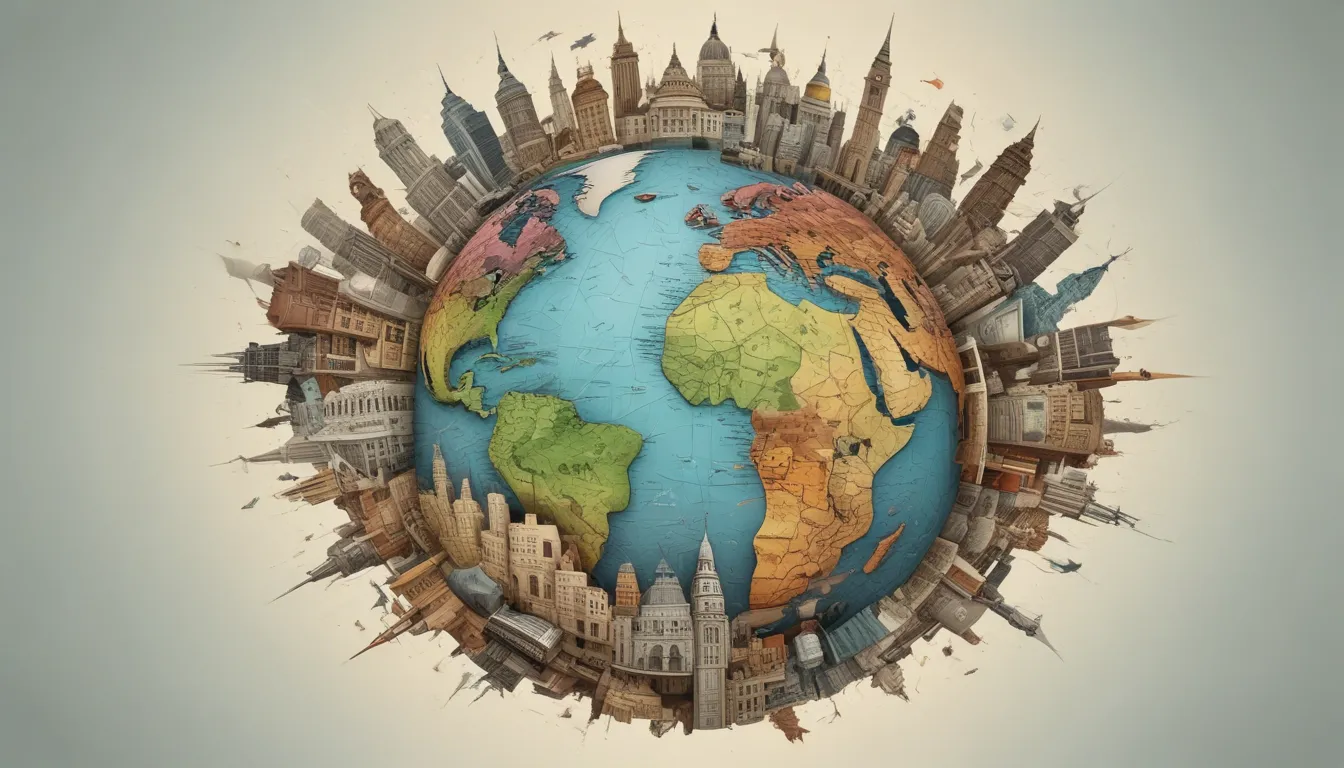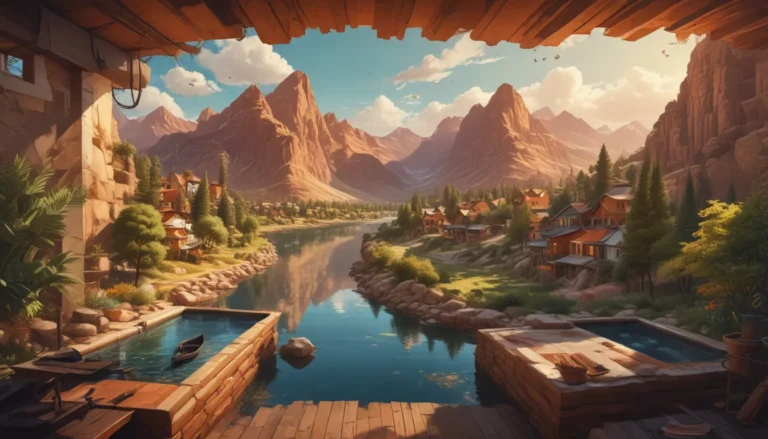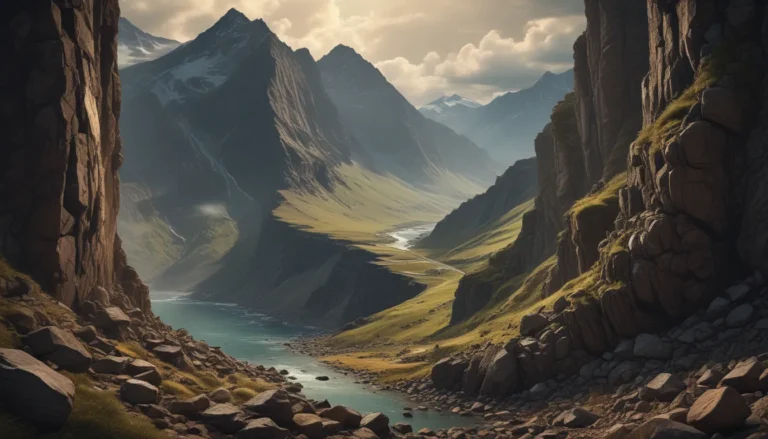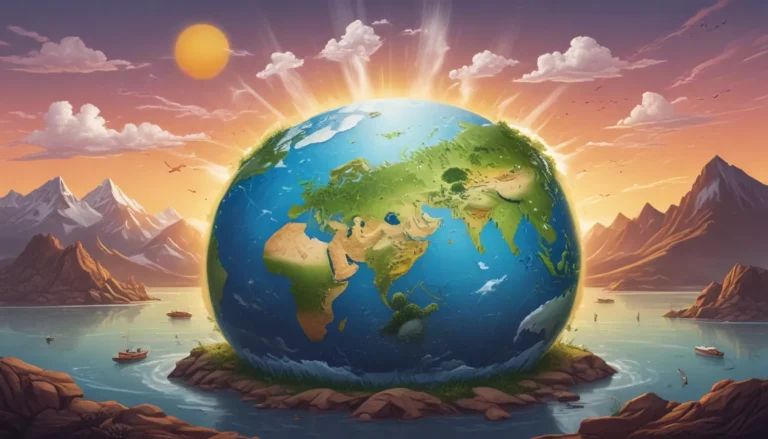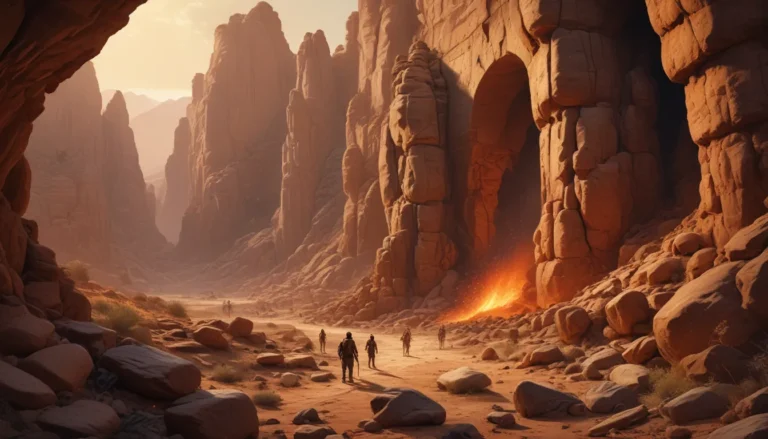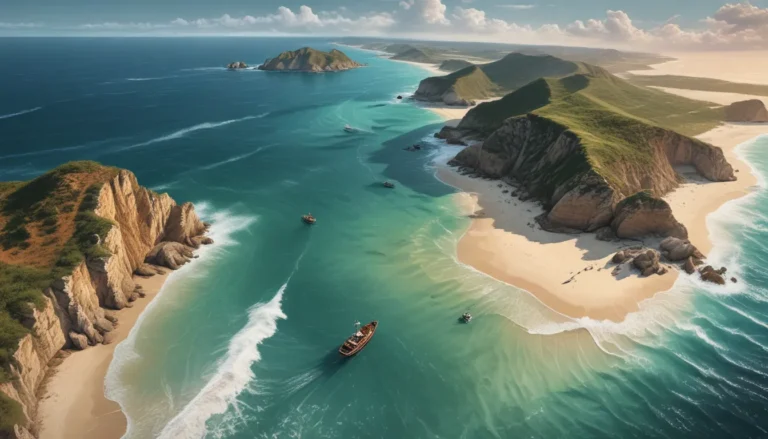A Note About Images: The images used in our articles are for illustration purposes only and may not exactly match the content. They are meant to engage readers, but the text should be relied upon for accurate information.
Political geography is an enthralling field that delves into the intricate relationship between politics and geography, shaping the world we live in. This article aims to unravel 10 fascinating facts about political geography, offering valuable insights into how these two realms intersect and mold our global landscape. Let’s embark on a journey to broaden our understanding of the complexities behind borders, territories, and power dynamics.
Unveiling the Interconnected Web of Political Geography
Political geography serves as a vital lens through which we can comprehend the complexities of global relations, conflicts, and power dynamics. Here are some captivating facts that shed light on the intriguing world of political geography:
Russia: A Continent-Spanning Giant
Russia, hailed as the largest country globally, stretches its vast expanse across both Europe and Asia. It stands as a testament to the awe-inspiring nature of political geography, bridging continents through its sheer size and scope.
United Nations: A Global Convergence of Nations
With 193 member countries, the United Nations stands as a beacon of international cooperation and peaceful coexistence. This global platform unites nations in a collective pursuit of global peace and solidarity, highlighting the strength of political geography in fostering diplomatic ties.
Greenland: An Autonomous Territory of Denmark
Contrary to popular belief, Greenland is not an independent country but an autonomous territory of Denmark. This unique geopolitical arrangement underscores the intricate web of political relationships that dictate sovereignty and governance.
Monaco: The Epitome of Elegance
Nestled as the world’s second smallest country, Monaco exudes glamour and luxury, showcasing how political geography manifests in the diverse sizes and landscapes of nations across the globe.
Berlin Wall: A Divisive Barrier
During the Cold War era, the Berlin Wall stood as a physical and ideological barrier, separating East and West Germany. Its presence symbolized the profound impact of political decisions on shaping physical landscapes and cultural divides.
Nile River: A Lifeline Across Nations
Flowing through multiple African countries, the Nile River holds the distinction of being the world’s longest river, weaving a thread of connectivity across diverse regions and nations.
Hong Kong: A Unique Governance System
Following its handover to China in 1997, Hong Kong operates under the “One Country, Two Systems” principle, showcasing a distinctive blend of governance styles within a single geopolitical entity.
India: The Beacon of Democracy
As the largest democracy globally, India affirms the power of political geography in enabling citizens to participate in governance and elect their representatives, shaping the fabric of democratic institutions.
The Great Wall of China: A Myth Debunked
Contrary to popular belief, the Great Wall of China is not visible from space, challenging the long-standing myth surrounding its visibility and underscoring the importance of accurate geographical knowledge.
Australia: A Continent-Country Fusion
Australia stands as a unique amalgamation of a country and continent, embodying the diverse intersections between political boundaries and physical landscapes on a global scale.
Navigating the Landscape of Political Geography
Political geography unravels a tapestry of historical, cultural, and strategic elements that shape our global landscape. By exploring these intriguing facts, we gain invaluable insights into the intricate mechanisms driving international relations and geopolitical dynamics.
Delving deeper into the nuances of political geography allows us to grasp the complexities of borders, territories, and geopolitical relationships that define our interconnected world. It equips us with a comprehensive understanding of how political decisions influence our societies, economies, and governments, offering a holistic perspective on the evolving terrain of global politics.
In conclusion, the realm of political geography serves as a gateway to unraveling the multifaceted web of political processes, power dynamics, and territorial landscapes that define our world. By immersing ourselves in the wealth of knowledge surrounding political geography, we can navigate the complexities of global affairs with clarity and insight.
Exploring Further: FAQs on Political Geography
-
What is political geography?
Political geography explores the spatial aspects of political processes and power dynamics, focusing on how states, nations, and governments interact with each other within the geographical realm. -
Why is political geography important?
Political geography is essential in understanding how political decisions impact power distribution, resource allocation, and global dynamics, shedding light on the complexities of conflicts and alliances. -
How does political geography affect international relations?
Political geography shapes diplomatic interactions, trade relationships, and military strategies among nations, influencing the balance of power and alliances in global affairs. -
What are key concepts in political geography?
Borders, sovereignty, territoriality, nationalism, geopolitics, and supranational organizations are pivotal concepts in political geography, aiding in the analysis of political landscapes. -
How does political geography relate to other disciplines?
Political geography intersects with fields like international relations, history, sociology, and economics, drawing insights from diverse disciplines to interpret political landscapes.
Embracing the Fascination of Political Geography
As we unravel the captivating facts about political geography, we embark on a journey of discovery, enlightenment, and appreciation for the profound impact of political decisions and geographical landscapes on our world. Let us embrace the richness of political geography, empowering ourselves with the knowledge to navigate the ever-evolving terrain of global politics with insight and understanding.
